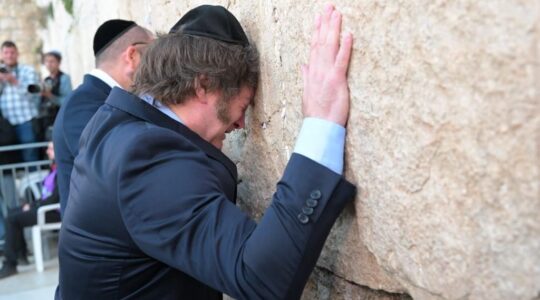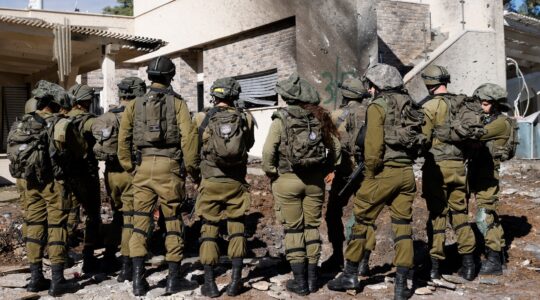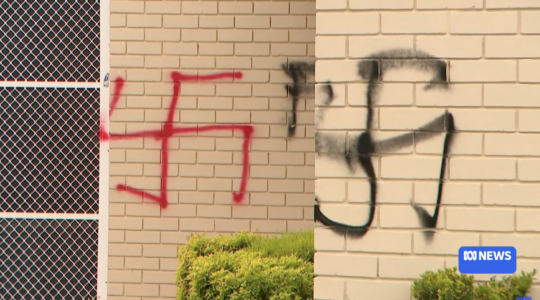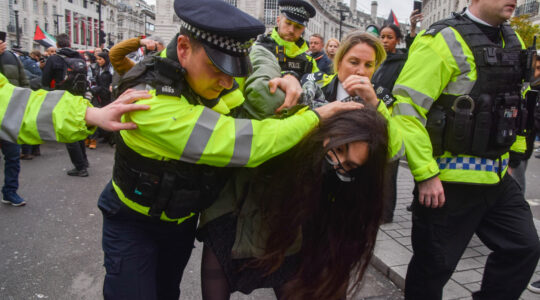SYDNEY (JTA) – The idea of hunting for Jews in the Australian Outback may sound as ridiculous as combing the streets of Jerusalem for Aborigines.
But when two Chabad emissaries set out this summer to find landsmen in the desolate Outback, they were not disappointed.
In fact, had history turned out a little different, there would have been a Jewish colony in the Australian wilderness, but in 1944 then-Australian Prime Minister John Curtin quashed a plan called the Kimberley Project to resettle 75,000 Jews from Nazi Europe in the Outback.
More recent, Australia’s colorful Orthodox rabbi, Joseph Gutnick, became known in the 1990s as “Diamond Joe” after his mining companies in the Western Australian desert struck rich veins, which Gutnick claims the Lubavitcher rebbe prophesied with a blessing on a map.
The rebbe is dead and the diamonds have dried up, but Jews are still searching the Outback. Only now it is Chabad emissaries seeking Jews, not jewels, in the Australian wilderness.
“The Lubavitcher rebbe instilled in us a love for every single Jew,” said Chaim Telsner, one of two visiting yeshiva students from New York who traveled through the Outback over the summer in a bright red-and-yellow Winnebago emblazoned with the Lubavitcher rebbe’s face looking for a few good Jews.
He and Mendel Grossbaum, a Minnesota native, were brought to Australia by the Chabad of Rural and Regional Australia to cross the continent in a “mitzvah tank” in search of Outback Jews.
“Most of the places we visit only have one Jew,” Telsner said. “We’ll drive four to six hours for one Jew.”
Saul Spigler, who founded the Chabad of Rural Australia in 1977, estimates there are 7,000 to 10,000 Jews living outside Australia’s major metropolitan-area cities. For years he has been overseeing a project to find, register and impact rural Australian Jews.
Operating on a shoestring budget and with only one full-time employee, Spigler says his project to reach the Jews of Australia’s remote areas yields high returns.
“Every Jew has a spark of Judaism, and you’ll be surprised how that spark becomes a burning bush sometimes,” said Spigler, who has 3,000 rural Australian Jews on his Chabad database. “There’s no other Chabad operation like this in the world that I know of.”
Spigler, a lawyer, reels off stories from his years on the road: the man living in tropical north Queensland who thought the mezuzah they installed on his door was a menorah; the priest on the island of Tasmania who asked to put on tefillin; the pig farmers in northern New South Wales who turned out to be Jews; the 90-year-old man in Western Australia who had never had a bar mitzvah until the mitzvah tank arrived at his door.
Most rural Australian Jews are amazed that the Chabadniks have traveled so far just to be with them, Spigler says.
“The chance to have some lasting impact is really there. It’s one of the reasons that inspired me” to create the Chabad of rural Australia, he said.
Ruthi Urbach is the only Jew living in Scone, a town in rural New South Wales best known as the last resting place of Australia’s richest man, media tycoon Kerry Packer.
“To have these boys turn up out of the blue just to say hello and bring some Jewish contact into our lives was just lovely,” she told JTA. “It’s a good feeling to know that someone out there has come so far just to see we are here.”
Michael Rosenfeld, who was one of the people Spigler visited back on his first trip to look for Jews in rural Australia in 1977, said the visit had a profound effect on him.
“Growing up I didn’t really have a lot of contact” with other Jews, Rosenfeld said. “I think they were a very important link for me at a critical time in my childhood.”
Rabbi Dov Oliver became Chabad of Rural and Regional Australia’s first full-time employee in 2004. He grew up in Melbourne; his father was a rabbi who traveled as far as Singapore to spread Yiddishkeit.
“The rural aspect is driving around the Outback looking for Jews,” Oliver said. “The regional aspect is different. My wife and I will fly somewhere where there are between 30 to 100 Jews and set up shop for a couple of weeks for a Pesach seder, Chanukah program or Rosh Hashanah.”
Oliver manages the mitzvah tank Winnebago, ensuring it is staffed by yeshiva students and stocked with kosher food, Jewish books, mezuzahs, tefillin and other Jewish paraphernalia.
“A fellow named Joseph in Darwin made a huge impression on me,” Oliver recalls. “He is elderly, has had a stroke, is quite poor and his wife left him. He knows little about Yiddishkeit but sits every Friday night and lights candles.”
JTA has documented Jewish history in real-time for over a century. Keep our journalism strong by joining us in supporting independent, award-winning reporting.





